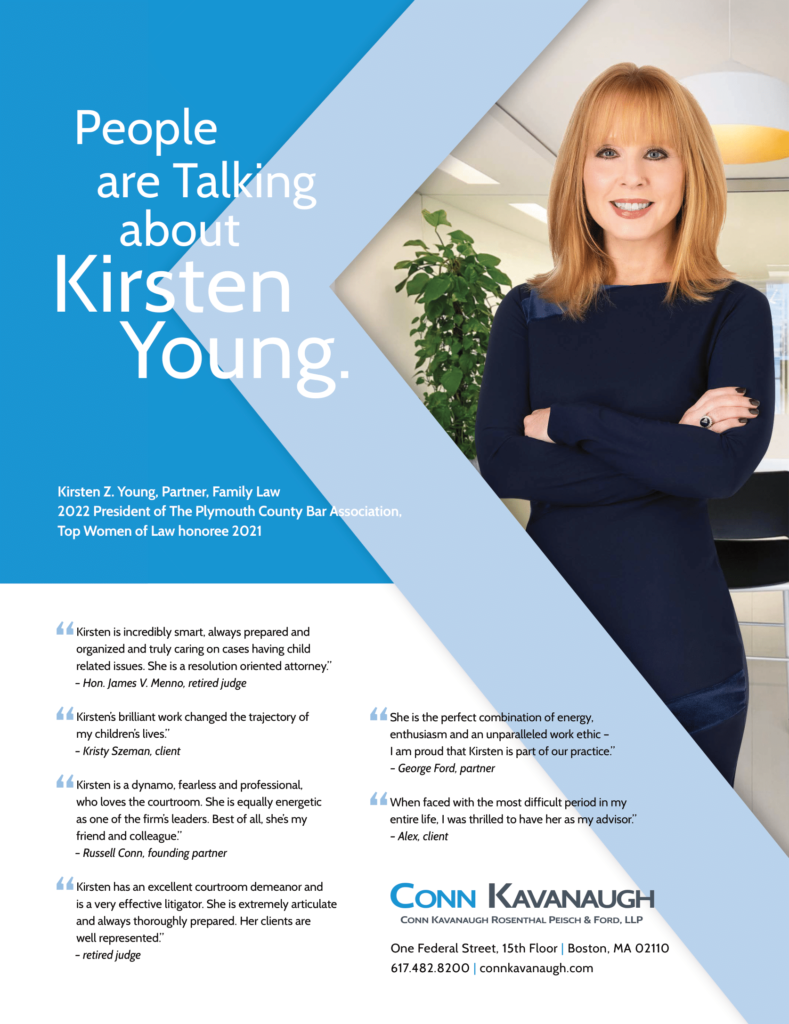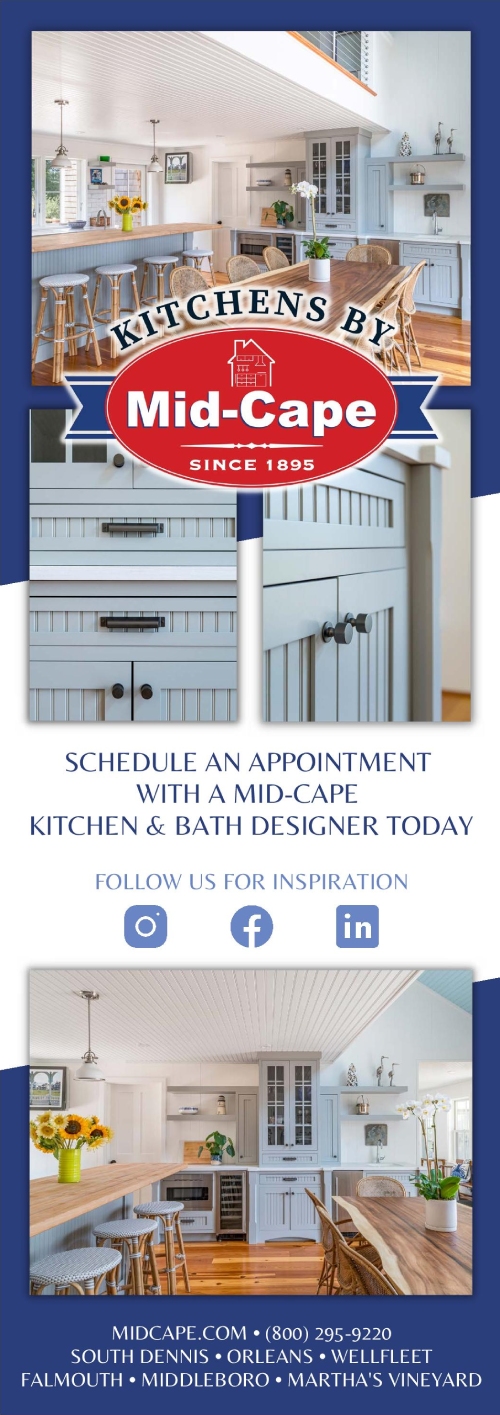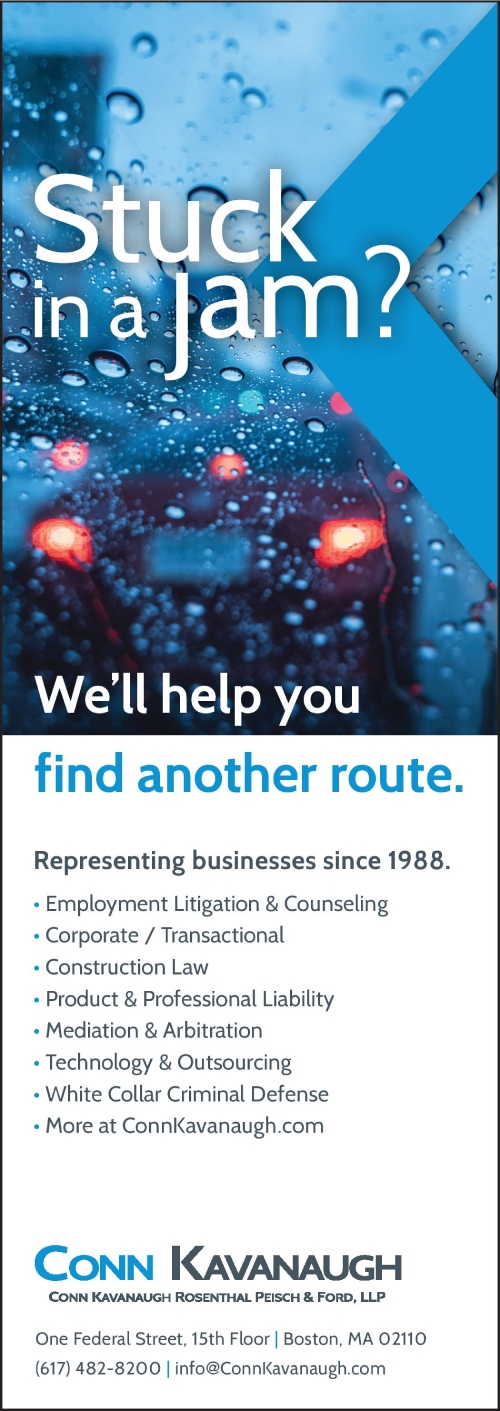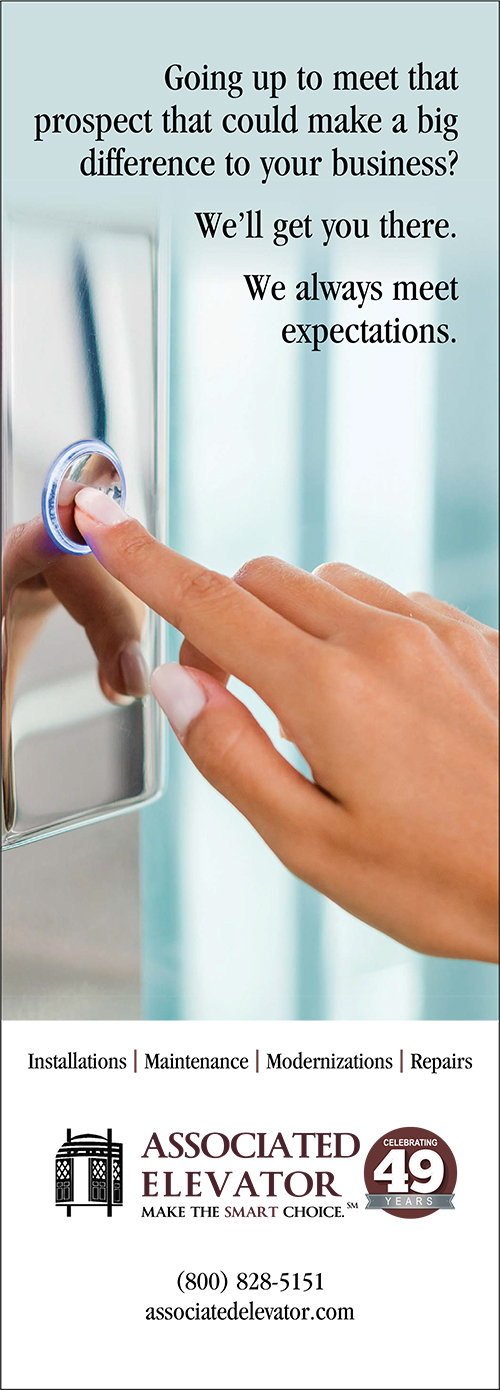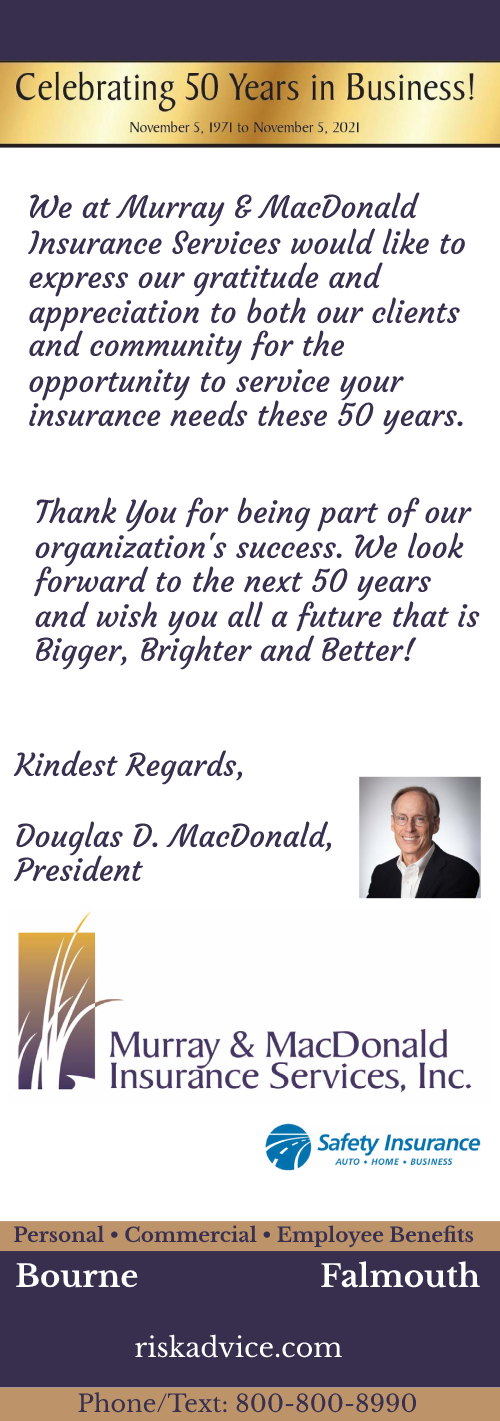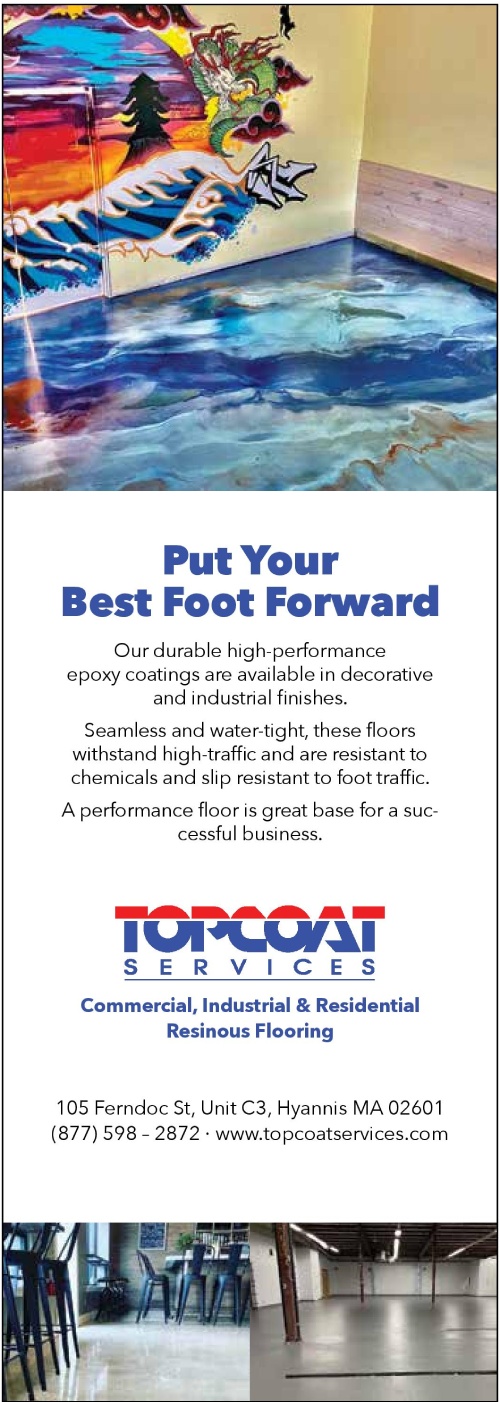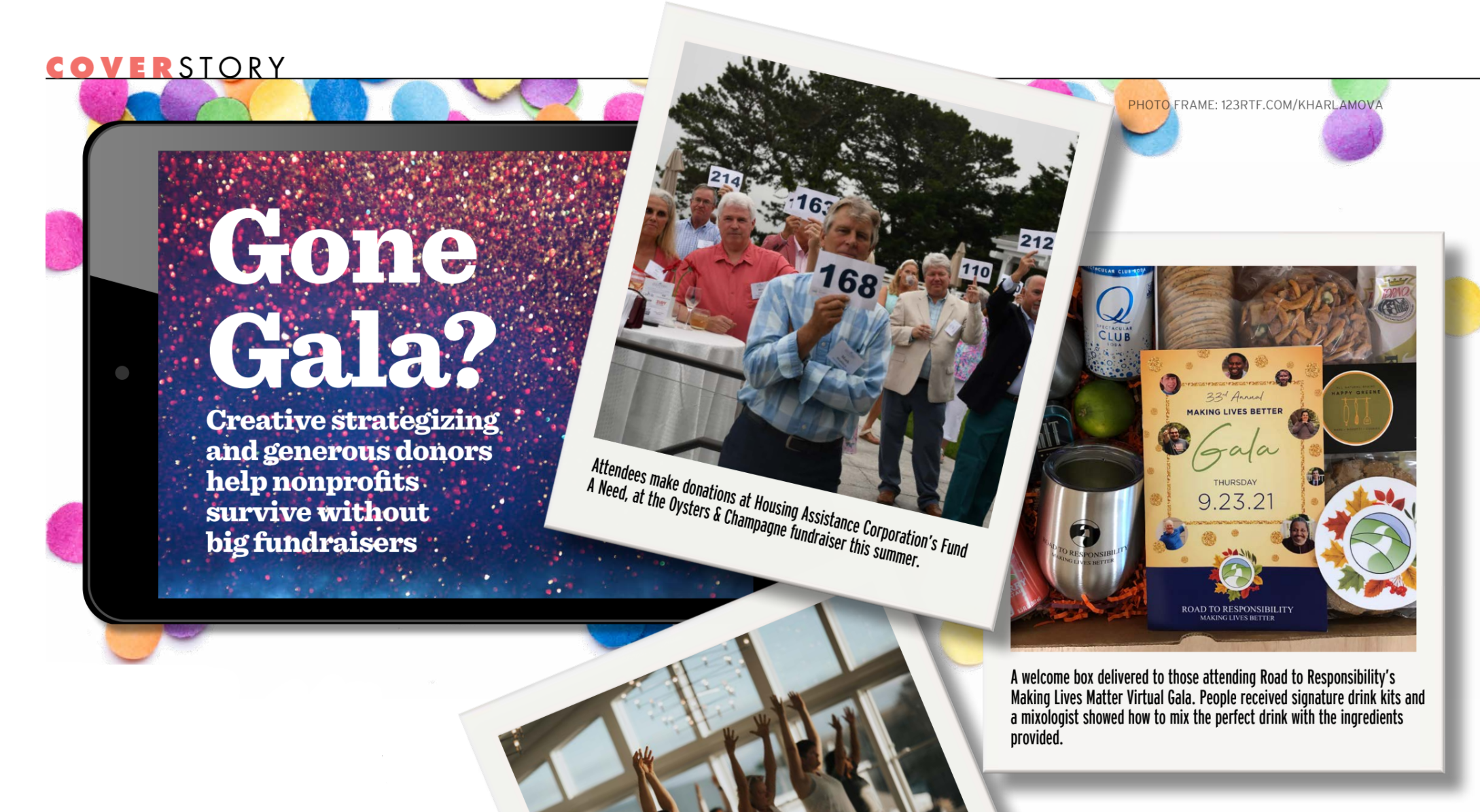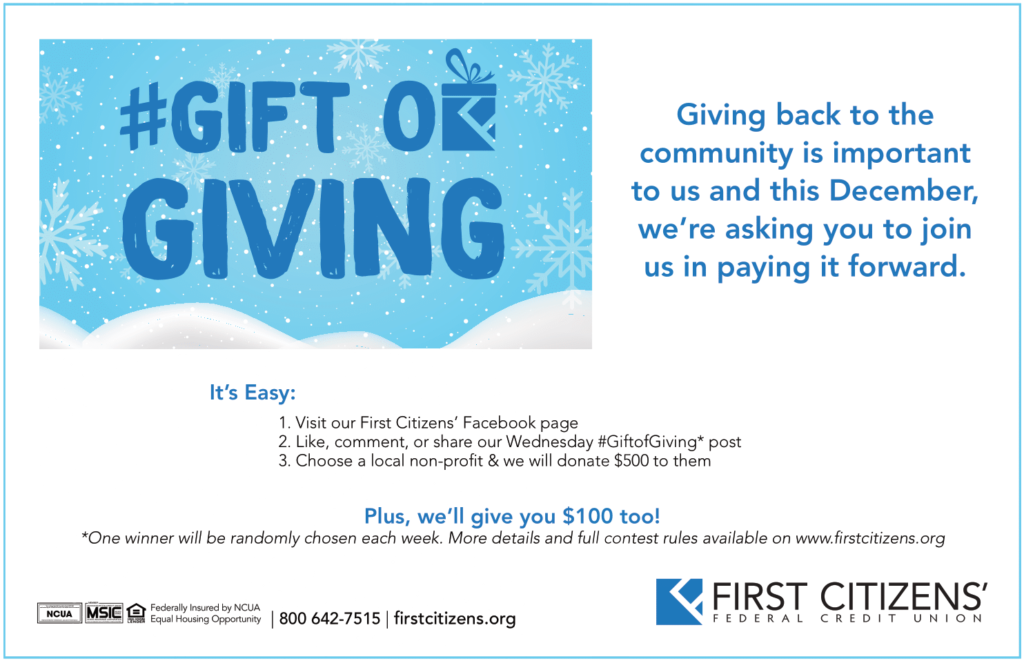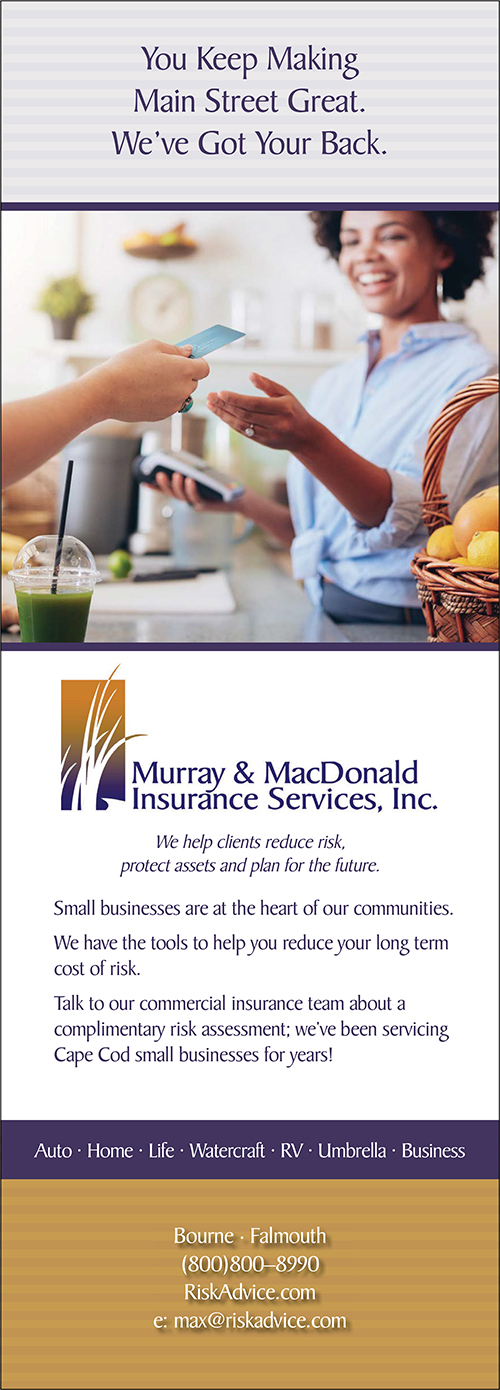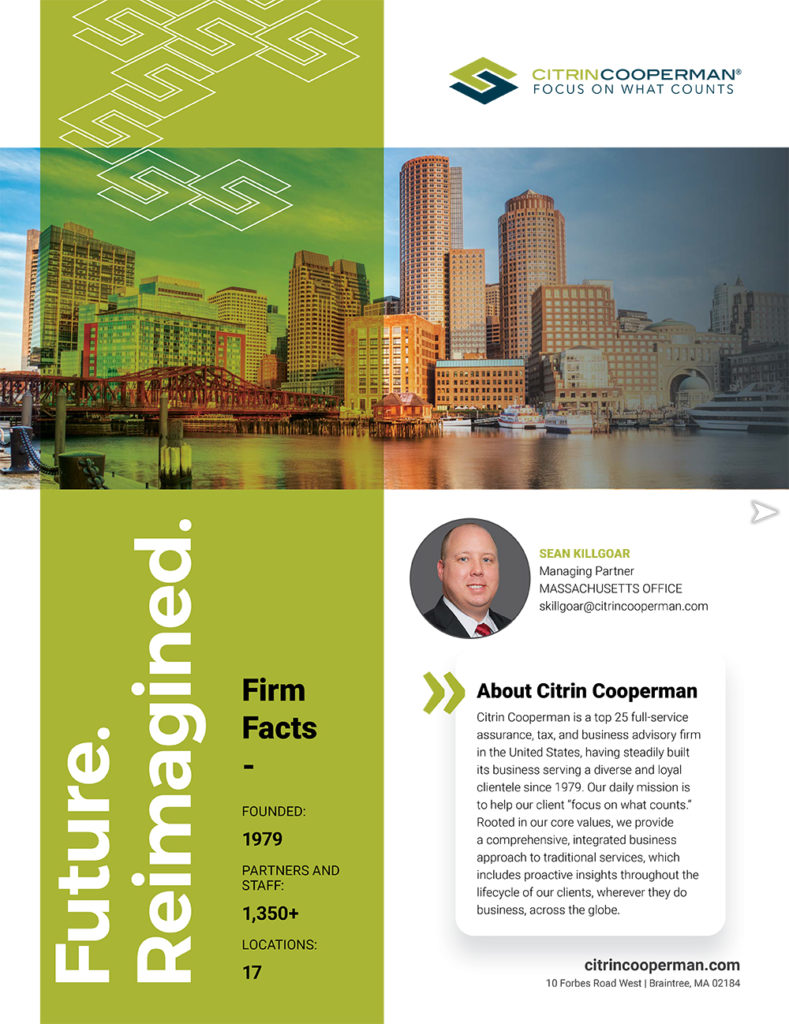GONE GALA?
Thanks to creative strategizing & generous donors, nonprofits are surviving without big fundraising events
By Carol K. Dumas
On Oct. 18, 2019, nearly 250 supporters of Habitat for Humanity of Greater Plymouth filled the ballroom at Hotel 1620 on Plymouth Harbor to raise more than $82,000, a record-breaking total for the organization. The Hearts & Hammers gala featured heartwarming stories from families who became owners of Habitat homes, built lovingly by volunteers and helped with countless supplies and labor donations from local businesses.
For 30 years, more than 10,000 people have flocked to the Hyannis Village Green to hear the Boston Pops Esplanade Orchestra live in concert sponsored by Citizens Bank, the concert is Cape Cod’s single largest cultural event and the most important fundraising event of the year for the Arts Foundation of Cape Cod.
It’s been two years since Habitat has been able to hold their gala and since the Pops played in Hyannis, due to the pandemic. Families were still in need of homes as was the revenue needed to build three homes over the past two years. Artists and cultural organizations supported by the Arts Foundations were in jeopardy; the arts sector on Cape Cod remains among the hardest hit by the economic crises brought on by COVID-19.
For the past two years, nonprofits have been creatively at work, many rethinking the lucrative, in-person fundraisers that were canceled or faced attendance limits due to state health regulations.
“We have consistently heard from our nonprofit partners about the profound impact COVID has had on their ability to hold fundraising events which, in the past, have generated significant revenue that is vital to their operation,” noted Kristin O’Malley, CEO of The Cape Cod Foundation. “That said, the creativity and uniqueness that many of our local nonprofits have shown over the past 18 months as they worked to identify new ways to generate revenue and to engage donors has been impressive, and many plan to continue these new opportunities into the future.”
The Cape Cod Foundation helps people create charitable funds that, when pooled and invested, generate revenue for scholarships to local students and grants to nonprofit organizations. The community foundation’s assets now exceed $65 million; since inception, the organization has distributed more than $80 million back into the community.
The continuing support of donors during these challenging times has been remarkable, O’Malley added.
“Donors and funders have embraced the notion that our community needs us to be flexible with how we distribute funds,” said O’Malley. “We are seeing an increased level of engagement with donors asking what nonprofits really need and nonprofits not being afraid to express those needs.”
The Virtual Event
Road To Responsibility, the Marshfied nonprofit whose mission is to provide the means, the opportunity and the support necessary to allow citizens with disabilities to take their place as productive members of the community, went with a virtual approach for its annual Making Lives Matter gala.
“The virtual gala worked very well and, in fact, raised more net proceeds than any prior gala (virtual or in-person),” said Christopher T. S. White, president and CEO. “This was largely due to the loyalty of our key sponsors who really stepped up this year, lower overall costs for virtual-only events and a few creative things we had done to increase engagement to try to give the evening more of an in-person feel.”
People received signature drink kits for the event and a mixologist joined the event to show people how to mix the perfect drink with the ingredients provided, he said.
“We had a live musical act play and we had attendees be able to make some requests from the band’s playlist in advance. We encouraged people to host Gala house parties with small groups of friends so people could be together safely and enjoy the event among friends… we had several and the groups who did so were generally highly engaged. Groups received charcuterie boards to share, giving a ‘common food’ experience of a gala to attendees.
White said they kept the event on time and “tight” as people don’t like spending a long time on Zoom. “This meant the emcee, Auctioneer and all speakers had to keep their roles crisp, upbeat and more time-limited.”
Habitat for Humanity of Greater Plymouth had success with two virtual cooking classes that benefited 2021’s three-house building projects.
Attendees paid a fee to view the “Cookin’ for a Cause” classes, one by chef-owner Andrew Rivera-Myers of Artisan Pig and the other by Susannah Locketti, owner of Hippy Pilgrim Garlic Salts and Gourmet Seasonings of Plympton. Belmore said the classes attracted from 20 to 30 viewers, who received a recipe in advance and were encouraged to take pictures of their efforts to enter into a contest that offered a restaurant gift certificate.
“I’d read about Andrew opening in Plymouth, during the pandemic and I was impressed by his initiative,” said Development Director Amy Belmore. “He was familiar with Habitat and was happy to contribute his time.”
Different Strategies
Road to Responsibility has found some different ways to promote its mission, including a greater use of video. “ We have been using a great videographer, Charlie Field from Field Communications in Scituate, for years but this past year we engaged him every month of the year shooting different types of videos for different purposes,” noted White. “These have been very effective for us, especially at the gala and in our social media posts… our YouTube channel has gotten thousands of views as a result.”
Advertising has also paid off.
“We have gotten some great mileage out of articles and ads placed on WATD 95.9 FM and in South Shore Magazine to help drive interest in the organization and specific events,” White said.
Habitat’s largest fund-raiser this year was a movie night at Moonrise Cinemas outdoor theater in Plymouth.
“I was sure that people were still not feeling comfortable sitting side by side at a banquet table, but people were itching to get out by then,” said Belmore of the idea.
Sunset at Moonrise in July, sponsored by North Easton Savings Bank, featured upscale food and craft beer. People could mingle and dine in open-air seating, or stay in their cars, watch the movie and have food delivered to them.
Return To Normal?
As health regulations were relaxed somewhat by the summer of 2021, the United Way Cape Cod & the Islands went ahead with all of its planned events, including Best Night, Power of the Purse and the Golf Tournament.
“Of course, we had limited capacity and followed guidelines set by the venues, said Executive Director Mark Skala. “The smaller crowds were extremely generous. People were enthusiastic about getting out and were in very giving moods.”
Cape Cod’s Housing Assistance Corporation’s three main fund-raisers all took place this year, including Walk for Hope in June, Oysters & Champagne at Wequassett Resort in July and the Telethon for Hope in December. Attended by around 200 people, Oysters & Champagnet raised nearly $270,000.
Duffy Health Center also went forward with its second Wellness on the Water community fundraiser, featuring yoga and other fitness classes, held at Wychmere Harbor Club in November. Proof of COVID vaccination was required for all in-person attendees and the event had a maximum occupancy for onsite attendees of 60 people.
“We had over 40 people attend the event and over 30 people attended virtually (we offered the virtual option for folks who don’t live locally or who wanted to participate from their own homes),” said Sara Grambach, Director of Development and Community Relations for Duffy Health Center in Hyannis.
Habitat’s annual gala is scheduled to return in 2022, as is the Arts Foundation’s signature Pops by the Sea.
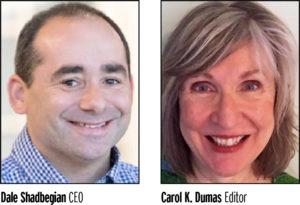
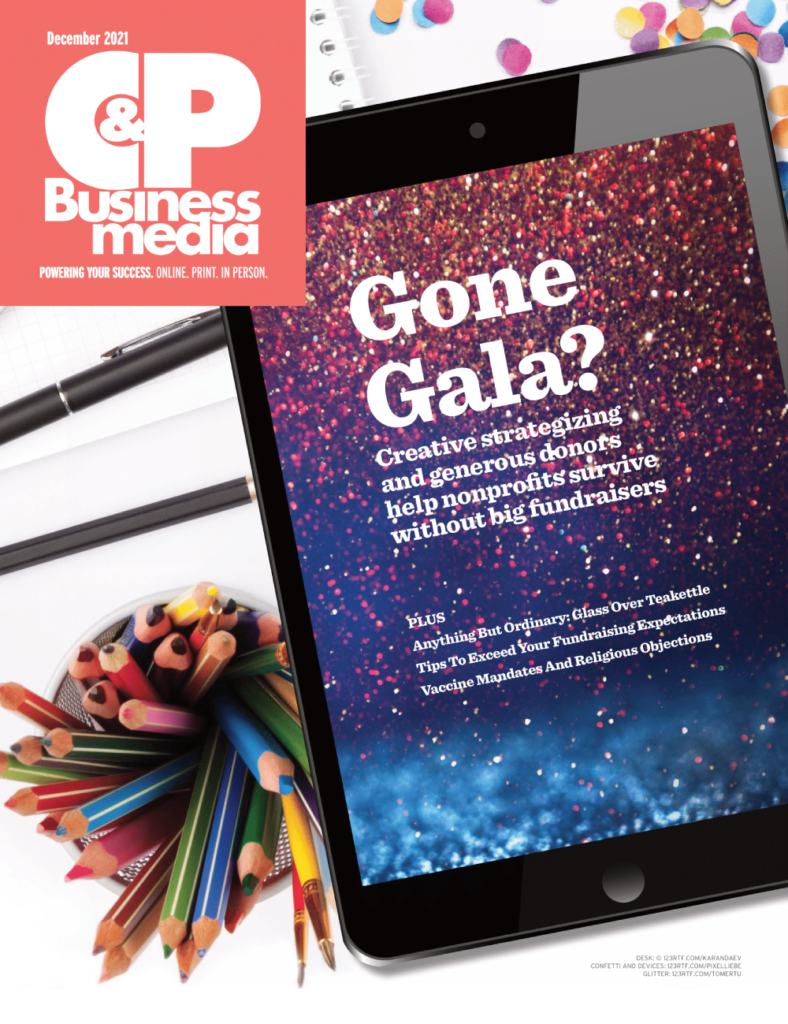



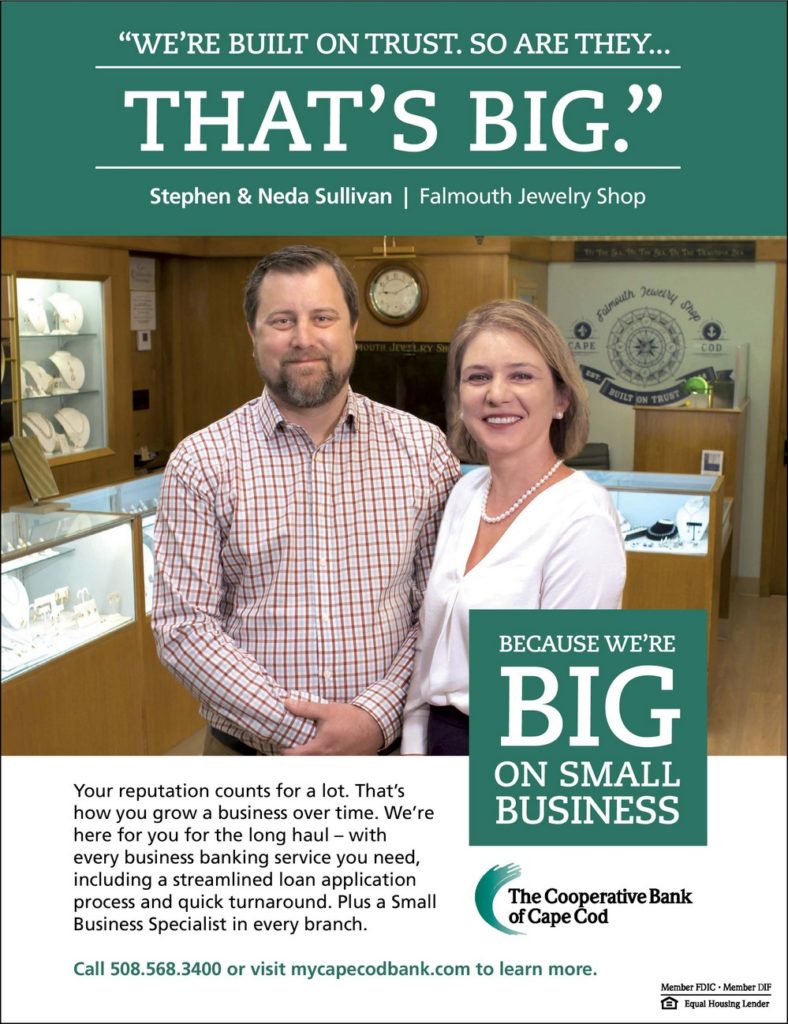
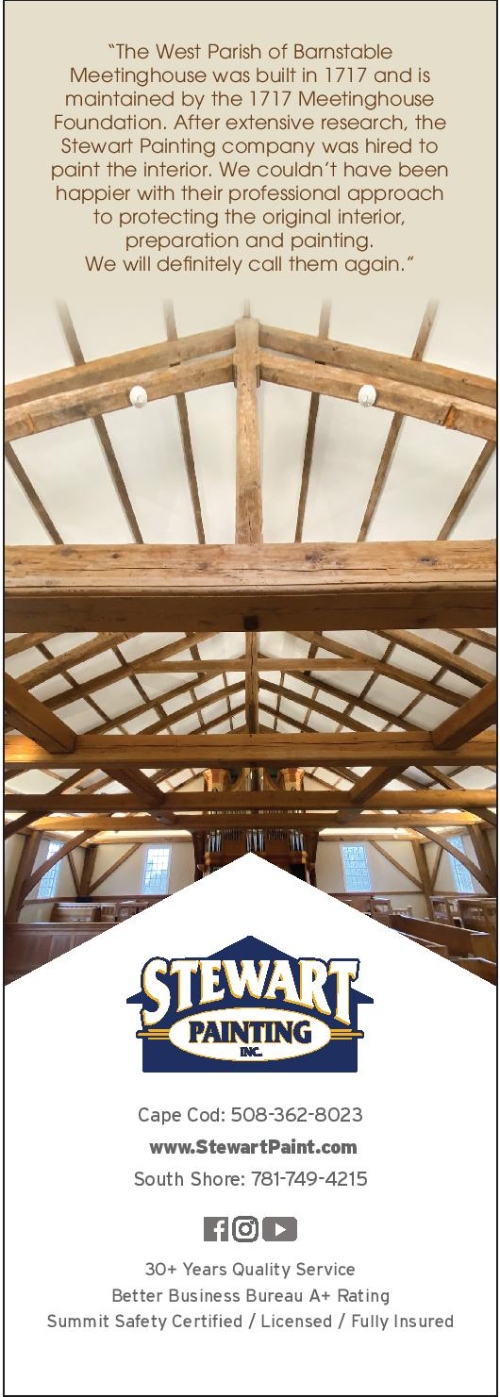
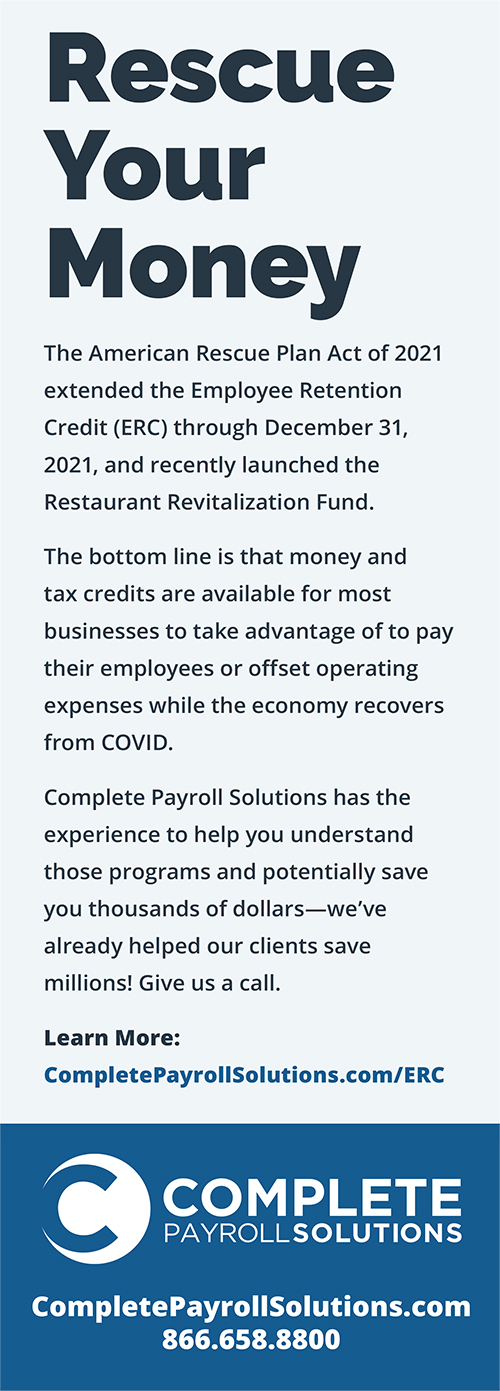


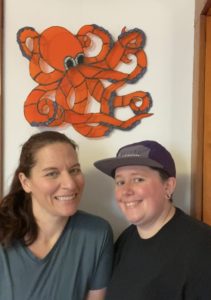 Meet Monica and Candace Collier, Stained Glass Artists
Meet Monica and Candace Collier, Stained Glass Artists